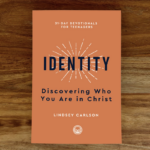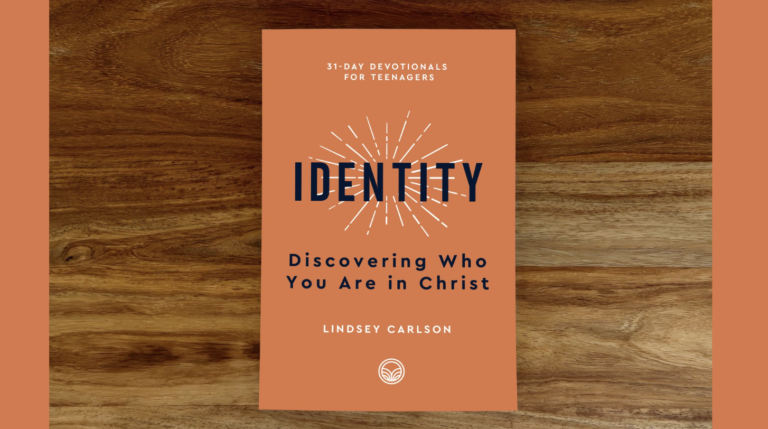The following article is a guest post from Winfree Brisley:
 The Christian life is meant to be lived in community. We are encouraged, challenged, and sanctified through relationships with other believers. But many Christians feel isolated and unsure about how to connect with others. Perhaps you had great community in college through a Christian campus ministry, and now you’re out in the workforce and struggling to find those kinds of relationships again. Maybe you’ve moved to a new city and aren’t sure how to break into established groups and create a new community for yourself and your family. Perhaps you’re surrounded by people who seem to be in a different life stage, and it feels like you can’t fit into the community around you.
The Christian life is meant to be lived in community. We are encouraged, challenged, and sanctified through relationships with other believers. But many Christians feel isolated and unsure about how to connect with others. Perhaps you had great community in college through a Christian campus ministry, and now you’re out in the workforce and struggling to find those kinds of relationships again. Maybe you’ve moved to a new city and aren’t sure how to break into established groups and create a new community for yourself and your family. Perhaps you’re surrounded by people who seem to be in a different life stage, and it feels like you can’t fit into the community around you.
Whatever your circumstances, here are seven suggestions for finding community:
- Join a church
This may seem obvious, but joining and investing in a church is foundational to building Christian community. I’ve often heard young adults lament the lack of community they have post-college while fondly reminiscing about their experience with a campus ministry. A common thread seems to be either they have not joined a church since college, or they are not invested in the church they have joined. Churches are the primary way Christian community is organized. Find a Bible-believing church in your city with pastors who faithfully preach the Word and join it. Then invest in it. The remainder of this list provides ideas for how to do that.
- Invite people over for dinner (in every season of life)
We have found that one of the best ways to get to know people is to invite them into our home and share a meal (or even just a dessert) together. Food is a fairly universal way to bond. While everyone may not be interested in joining you for a hike or going to a concert, everyone has to eat and most people enjoy doing it with others.
Being married is not a requirement for this type of hospitality. We have a friend who as a single man regularly invited other single people, couples, and families into his home for meals. His intentionality about pursing relationship built him many lasting friendships. It also helped him find his wonderful wife. Now they regularly invite others into their home together.
You can also volunteer to take a meal to someone else’s home if you have more flexibility than they do. We have some friends who as a married couple without children often asked families with children if they could bring pizza over for dinner so that everyone could more easily enjoy the fellowship. No one ever turned them down!
- Serve
While many churches have paid staff, the various ministries of the church largely function by members volunteering their time and energy. Most ministries involve serving with other members and provide a great way to build relationships. Serving in the nursery is a prime example. Nothing bonds people like cleaning up an exploding diaper or trying to wrangle a herd of 2-year-olds and their Cheerios around a table for snack time. Not to mention, caring for people’s children to allow them to worship in peace will make them instantly predisposed to like you! If children just aren’t your forte, there are plenty of other ways to serve. Sign up to take a meal to a family in need. Become a greeter. Join the worship team. Whatever your interests or gifts, there is somewhere for you to serve the church.
- Introduce yourself to new people you see at church
As you seek to build community, set yourself up for success. Seek out others who are likely looking for community too. People who are new to a church usually fit this category. When you notice visitors, go up to them after the service and introduce yourself. Be bold and ask if they have lunch plans. If they aren’t available that day, try to set something up for a future date.
Right after graduating from college, my husband and I moved to a suburb of Philadelphia. The first Sunday we visited a church, a man introduced himself to us after the service. He told us a bit about his family and the church, and then invited us over for dinner that week. We went to dinner, met his wife and daughter, and formed a friendship that lasts to this day even though we moved away from that town years ago. If you are blessed to receive this kind of invitation, be sure to accept!
If your church is somewhat large, it may not always be clear to you who is new. Our associate pastor wisely recommends asking the question, “How long have you been coming to _______ church?” rather than “Is this your first time visiting?” When following his model, I have gotten answers ranging from “this is my first Sunday” to “we’ve been members for about five years.” This approach has saved me some embarrassment and made for much more successful conversations.
- Join a small group
Most churches now have some form of small groups that meet throughout the week. Whether they are called community groups, life groups, covenant groups, or just small groups, they are usually a fantastic way to build relationships with other believers. Though each church may have its own spin on how they work, the general idea is a small group of believers getting together in someone’s home to study Scripture and pray together. The common interest in studying the Word and growing in the Lord provides a wonderful foundation for developing meaningful personal relationships with other members of your church.
- Follow up on prayer requests
When you are made aware of a prayer request, whether someone shares it with you individually, you hear it during small group, or it is shared in a corporate setting, follow up on it in two ways. First, pray for the request. Praying for others causes us to care for them, to become invested in their lives, and to exercise faith on their behalf. Second, check in with the person to see how it turned out. For example, if someone in your small group asks you to pray for an upcoming family gathering or work meeting that they are anxious about, make note of when the event will take place (put a reminder in your phone or write it on your calendar) and make a point to ask the person afterwards how it went. They will appreciate your concern and likely want to reciprocate by praying for you. What better way to begin a friendship with someone than praying for one another!
- Go to Sunday school
Not all churches offer Sunday school, but if yours does, take advantage of it. Some churches organize Sunday school by ages or life stages, others by topics. Either way, it is a good opportunity to meet people in a small, informal setting. Sunday school classes will likely put you in contact with people who are not in your small group and allow you to broaden your connections within the church. And even if you don’t meet your best friend in Sunday school, we can all benefit from additional time studying the Word.
The list above is merely a list of suggestions. It’s helpful to add in a large dose of patience and grace. Building community takes time, so be gracious to yourself and others. These ideas may not work in all contexts, but the main idea is that building community is an active pursuit. Be creative. The Lord is building his church everywhere. Find out where his people gather in your area and get involved. The blessing of community is worth the effort.
Winfree Brisley is a wife and mom who enjoys sharing her love of Scripture through writing and teaching other women. She lives with her husband and son in Charlotte, North Carolina, where they are members of Uptown Church (PCA).

















